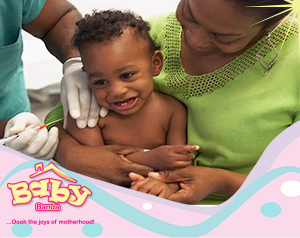From birth, babies are subjected to many vaccines that are administered all the way until they reach toddlerhood. In Kenya, most babies go through these immunisations with no trouble at all except for minor side effects which quickly clear away over time. Even so, there are some babies that have severe reactions to vaccines and may even need to be hospitalised for proper treatment. It is for this reason that Kenyan parents are advised to be aware of symptoms of life-threatening reactions associated with baby vaccines. Apart from parents, these danger signs should be taught to nannies and other childcare providers that the baby comes into contact with regularly.
Although danger signs associated with vaccinations given to children are quite a number, they should be taken seriously when they are seen in babies. The best response is to seek appropriate treatment within the shortest time possible as delay may be fatal in some cases. Some of the most common danger signs linked to vaccinations for babies and parents in Kenya should look out for are:
- Difficulty in breathing – The baby begins to have a hard time breathing immediately after the vaccination or a few hours after it has been administered to them. Breathing difficulties may point to allergic reactions to the vaccine requiring treatment to relieve the effects of the vaccine as soon as possible as delays may be fatal.
- High-pitched wail – If your baby continues to wail without stopping, it is a danger sign of a vaccination reaction that should be attended to as soon as possible. Most times, the cry will be different from the usual and the baby will refuse to be comforted for hours.
- High fever – It is normal for babies that have been just been vaccinated to experience fever but it is usually low grade and does not exceed 102 degrees Fahrenheit (38.8 celsius). Most times, the fever can be brought down using baby-friendly pain relievers. However, if the fever gets to 104 degrees, you might need to take them to the hospital for further tests so that appropriate medication can be administered.
- Groggy or sleepy – Some babies become sleepy after vaccination and usually take a nap and wake up after a few hours. However, if your baby oversleeps or becomes groggy to the point where they are unable to wake up after several attempts, it is a danger sign. In such situations, call your doctor immediately and rush the baby to the hospital.
- Convulsions – If your baby begins to convulse or have a seizure after vaccination, they need to be seen by a doctor immediately. Common signs of a seizure include rapid blinking and limbs getting stiff among others.
In most cases, a child that suffers adverse reactions within 72 hours to any of the vaccinations scheduled by the Ministry of Health in Kenya or WHO globally should delay their vaccination schedule. The main reason for this is to allow their immune system to mature enough to handle the vaccines.













